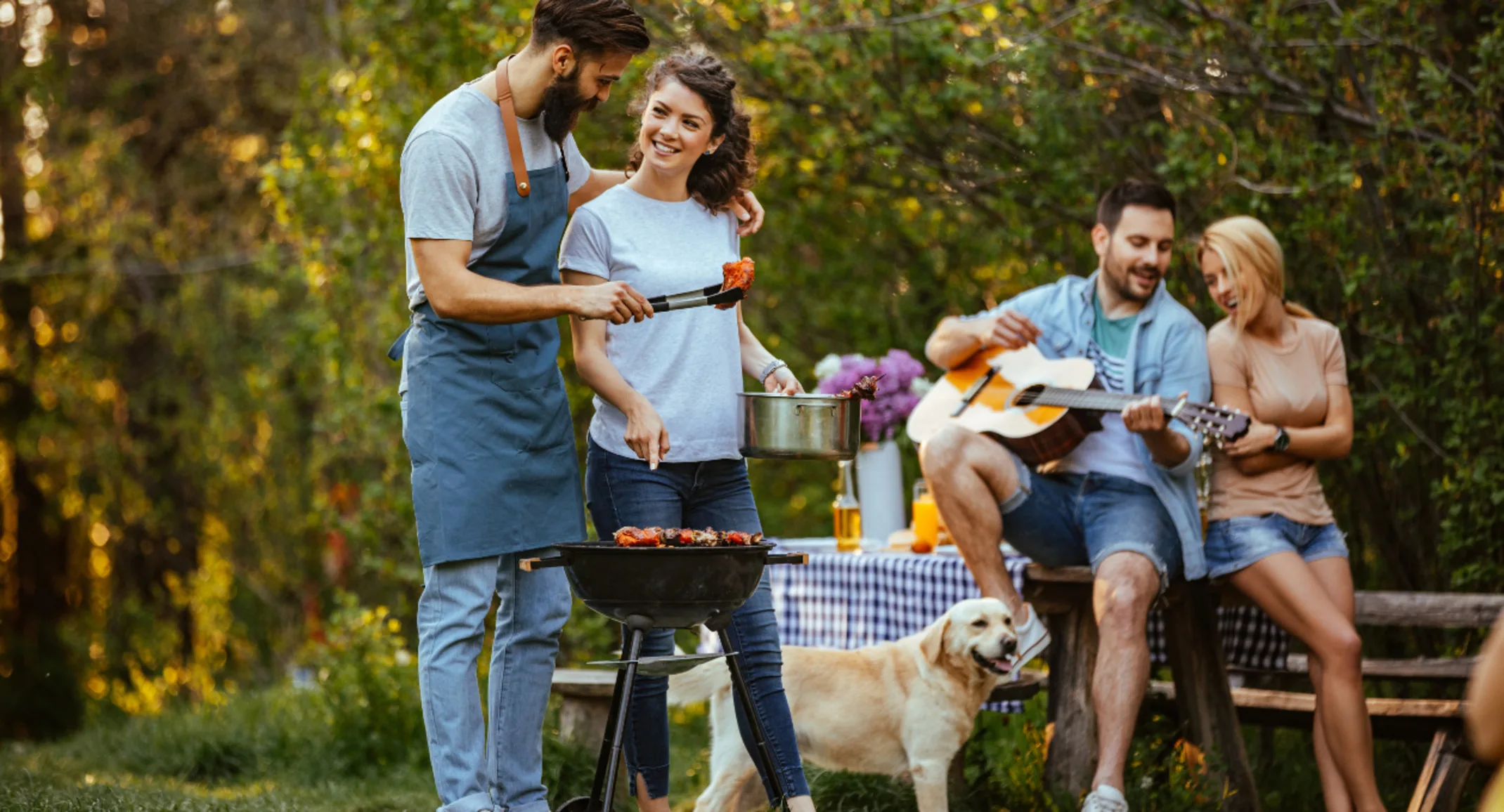Barbecue Pet Safety: How to Avoid a Cookout Calamity
August 14, 2025 · Pet Safety

Summer cookouts can be a highlight of the season. Who doesn’t enjoy great food, time with friends, and lazy evenings outdoors? Unfortunately for pet owners, barbecues—the grills and the parties—can be dangerous. Sizzling meats, unattended plates, and open gates are tempting for dogs looking for a snack or stroll outside the fence.
If you’re planning a cookout, a few precautions can help keep your pets safe. Here are our Animal Emergency & Referral Associates team’s recommendations to help you master barbecue pet safety and prevent an unplanned trip to the veterinary emergency room.
Barbecue pet safety risks
Barbecue foods are delightful and irresistible to pets, but they’re also loaded with fat and potentially toxic or dangerous ingredients. Plus, they’re often served in environments that can be loud, distracting, and stressful for pets.
Pets attending summer cookouts could suffer from:
Burns from hot grills or coals
Gastrointestinal upset or pancreatitis from greasy foods
Ingestion of toxic foods, such as onions and garlic
Intestinal blockages from skewers, corn cobs, meat strings, or cooked bones
Stress, anxiety, or escape from noise and activity
Luckily for pets, most of these risks are avoidable if you know how to prepare.
Grills and grease traps
Grills are high on the list of barbecue pet safety hazards. Curious dogs and cats can jump up to investigate enticing smells, potentially knocking the grill over or suffering from severe burns. The grill’s grease trap or drip tray is often overlooked as a potential pet danger. Fat, oil, and meat drippings collected in the tray are a hungry dog’s dream, but even a small amount can lead to vomiting, diarrhea, or painful and life-threatening pancreatitis.
Empty the drip tray after each use in an area your dog cannot access—if you accidentally “flavor” the grass, gravel, or mulch, your dog could eat it and end up with pancreatitis or an intestinal obstruction. Keep pets several feet away from the grill and never leave them unattended.
Table scraps and toxic foods
Your pet’s begging eyes are hard to resist, but a few bites of the wrong food can result in a serious barbecue pet safety issue. Toxic and harmful foods to keep away from pets include:
Onions and garlic
Grapes and raisins
Corn cobs
Cooked bones
Alcohol
Fatty meats and skin
Instead of feeding your pet from your plate, set aside a special treat for them to eat while guests enjoy their meal. Ask guests not to feed your pet. Instead, provide a jar with dog treats or kibble for guests to offer a safe snack.
Trash and leftovers
Accidents often occur at the end of a party. Unattended trash cans, bags, or loose plates provide easy access to barbecue pet safety hazards like toxins, scraps, and objects that can cause an intestinal obstruction. Skewers, foil, corn cobs, and plastic wrap are frequent offenders.
Use a large, lidded, heavy trash can, and clean up as you go. Designate one person to make rounds and collect trash frequently, then do a “final sweep” of the yard or patio at night's end.
Stress and anxiety
Barbecues are loud, busy events, and not every dog enjoys being part of the action. Barbecue pet safety risks that can overwhelm anxious pets include strangers, running kids, firecrackers, and loud music.
If your dog gets anxious or likes guests a little too much, letting them sit the party out is okay. Set them up inside with a favorite toy, calming music, and a long-lasting treat, such as a frozen, filled Kong toy or dental chew.
Open doors and escapes
With guests coming in and out, doors and gates may not close properly. Dogs startled by noise or drawn by food odors could bolt through an open door and into the street. Summer pet safety includes preventing barbecue-related pet loss and traffic accidents. Try the following:
Replace loose fence components or broken gate latches.
Use a double-barrier containment method (e.g., gate + leash, baby gate + front door).
Update your pet’s microchip information.
Supervise pets closely while outdoors or mingling with guests.
What to do in case of a barbecue-related pet emergency
Seek veterinary care if your dog eats something questionable or develops signs of illness during or after a barbecue. Toxin ingestion, pancreatitis, and intestinal blockages can become serious within a few hours. If your primary veterinarian is closed, you can contact the ASPCA Animal Poison Control Center hotline or head to AERA for emergency care.
Barbecue pet safety ensures your next summer bash is fun for the whole family, including your pets. With a bit of planning and awareness, you can enjoy the cookout without worrying about a veterinary emergency. However, accidents happen. If your pet needs urgent medical attention or you have a question about their condition, contact the emergency service at AERA.

